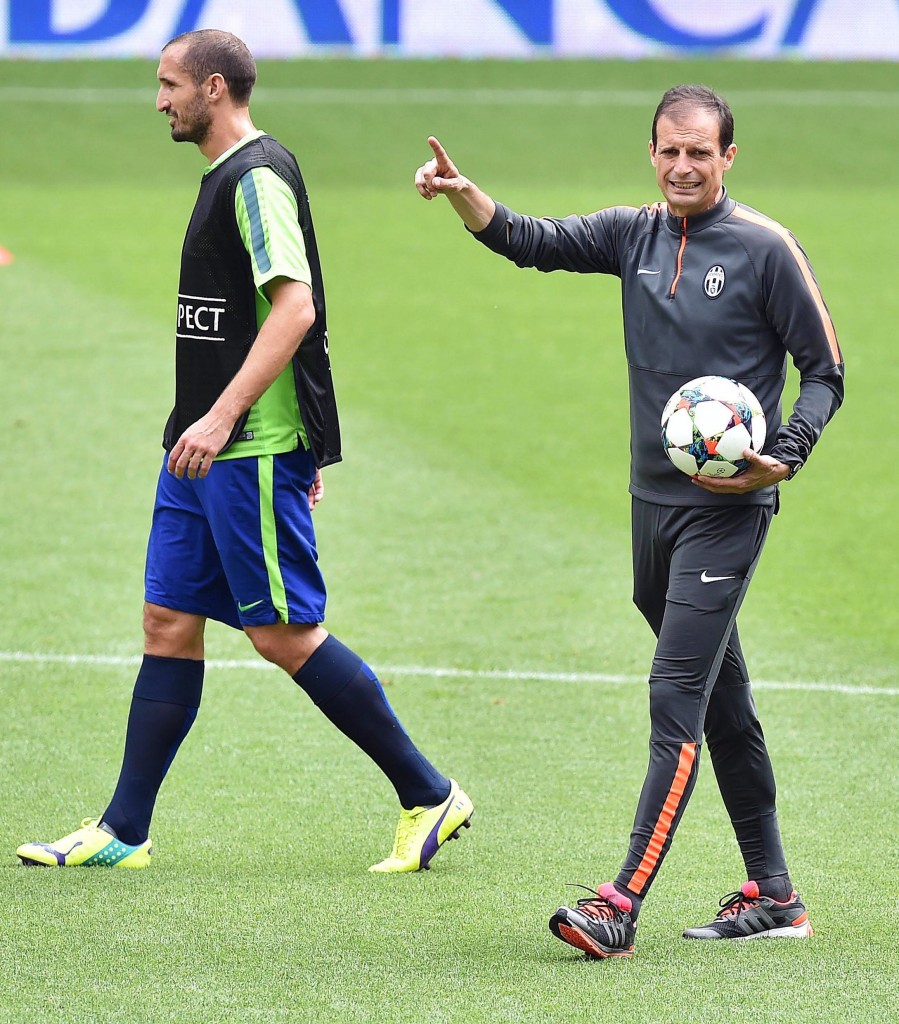With the battering that Serie A has received over the past few years for a perceived lack of quality it was heartening to see Juventus do so well in the Champions League this season. The Bianconeri knocked Real Madrid out in the semi-finals after winning 3-2 on aggregate, with former Madridista A?lvaro Morata scoring in both legs similar to what Fernando Morientes did for Monaco in 2004. Between Max Allegri’s side and Juventus’ third European Cup stand Barcelona, fresh from beating former manager Pep Guardiola’s Bayern Munich in the other semi-final. Bar a have continued to develop a fearsome ability to break teams apart with a flash of Lionel Messi’s left-boot, ably assisted by Neymar and Luis Suarez in arguably football’s greatest ever attack. So how exactly should Juventus go about trying to beat Barcelona while keeping MSN quiet?
Stifle the midfield
In the first-leg of the semi-final against Madrid, Juventus lined up with a narrow midfield, Andrea Pirlo sitting at the base of a diamond with a flexible trio of Claudio Marchisio, Stefano Sturaro and Arturo Vidal playing in front of him. The only change for the second-leg saw Paul Pogba come back into the side after injury lay-off to replace Sturaro, who made a decisive clearance on the line to divert James Rodriguez’s header onto the crossbar with Gianluigi Buffon stranded. Vidal and Marchisio put in herculean performances to restrict the space and not allow Isco or Toni Kroos to dictate play, while Pirlo wasn’t at his best but still provided calmness and excellent positional awareness, not to mention covering more ground than any other Juventus player in the first leg. Barcelona will most likely line up with a midfield of Andres Iniesta, Sergio Busquets and Ivan Rakitic, injury permitting, and there were signs in the second-leg against Munich that the trio can be targeted.
Munich pressed Busquets and limited his passing options, not allowing him to find the angles he likes to work with, leaving the Spanish international increasingly isolated as the game went on. Likewise, although he has brought balance to Bar a’s midfield this season, when denied time and space Rakitic often misplaced passes or was forced into playing backward passes, stunting Barcelona’s forward progression. Allegria s midfield contains a tremendous amount of energy and Vidal and co. will have to pick up where they left off in the Bernabeu if they are to have any chance of beating Barcelona.
Mascherano could be a weak link
Gerard Pique’s return to form has considerably strengthened Barcelona’s defence this season but there were glimpses of weakness against Munich, particularly when Robert Lewandowski was able to get Javier Mascherano in one-on-one situations. Carlos Tevez caused Real Madrid’s defence carnage on the counter-attack while it was a rare sight to see the imperious Raphael Varane on the floor following a drop of a shoulder from Fernando Llorente late on. Mascherano has proved that he is an excellent centre-back but there are still times where he is too impetuous and keen to win the ball especially against a physically imposing striker, as both Morata and Llorente are. Juve’s best chance of scoring is if they are able to split Mascherano and Pique and get Pogba, Vidal and Marchisio running off their markers in and around the final third.
Utilize the Set Pieces
.
A major area of concern for Barcelona will be set pieces, given the presence of Leonardo Bonucci, Giorgio Chiellini, Pogba, Morata and Llorente, should they play. Pirlo’s set piece delivery is a constant threat while Madrid found out to their detriment how powerful Juve are in the air when Pogba was able to knock the ball down for Morata to score the winning goal in the second-leg. Bar a aren’t as fallible as they once were at set pieces but the difference in physicality between the two sides is undeniable. Only Pique, Busquets and Jeremy Mathieu, if he plays, are capable of matching Juventus’ aerial power. In goal Marc-Andre ter Stegen, who has played exceptionally throughout Bar a’s run to the final, will have to command his area as he did to great affect against Munich.
The Old Lady made it to the finals through hard work by overcoming some of the Europea s elite clubs along their way to reach the finals, including victories over Real Madrid, Monaco, Borussia Dortmund and a draw against Atletico Madrid. Throughout the 2014/2015 Champions League campaign, the Old Ladya s defense has conceded just seven goals. This defensive brilliance was clearly showcased in the semifinals, where they restricted Real Madrida s versatile attack to just two goals over the two legs. Against Madrid both Cristiano Ronaldo and Gareth Bale failed to show up and Carlo Ancelotti’s decision to play Sergio Ramos in midfield majorly backfired in the first leg.
Juventus will however have their work cut out for them, as they will be facing the near-telepathic Catalan attacking trinity of Messi, Neymar and Suarez, who have amazingly combined for 120 goals for FC Barcelona this year. Massimiliano Allegri has an experienced midfield trio of Claudio Marchisio, Paul Pogba and Arturo Vidal, who can double up as defenders and attackers, thus helping to limit the Catalans from dominating in possession, which often lead to goal-scoring opportunities. Barcelona often over-commit on the offensive end leaving them vulnerable to opponentsa counter attacks. This was very evident in their recent 3-2 loss against Bayern Munich during the second leg of their Champions League semis. If Juventus can use their mean defense to keep Barca at bay, and then launch timely counter-attacks, forwards like Carlos Tevez (seven champions league goals) and Alvaro Morata (scored two goals in the two legs against Real Madrid and has 4 goals in the competition) could punish Barcelona similarly. A very resolute performance, probably the very best this season, will thus be required from Juventus. Whatever happens it promises to be a eagerly anticipated spectacle and, although underdogs, Juventus will have every confidence in their ability to defeat Barcelona.
